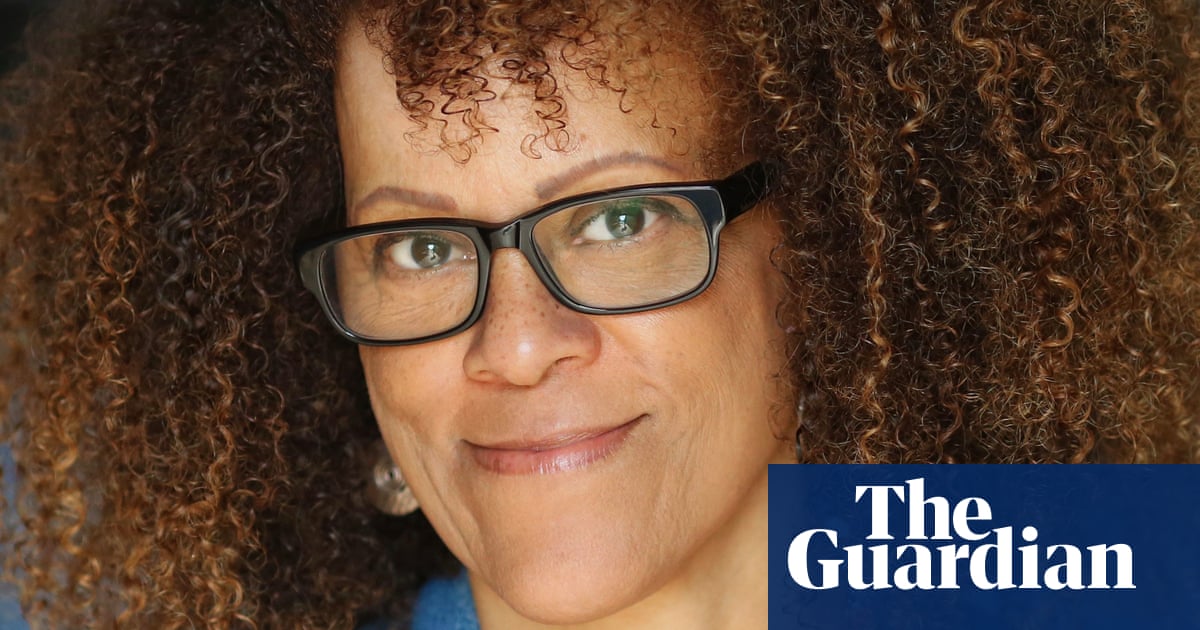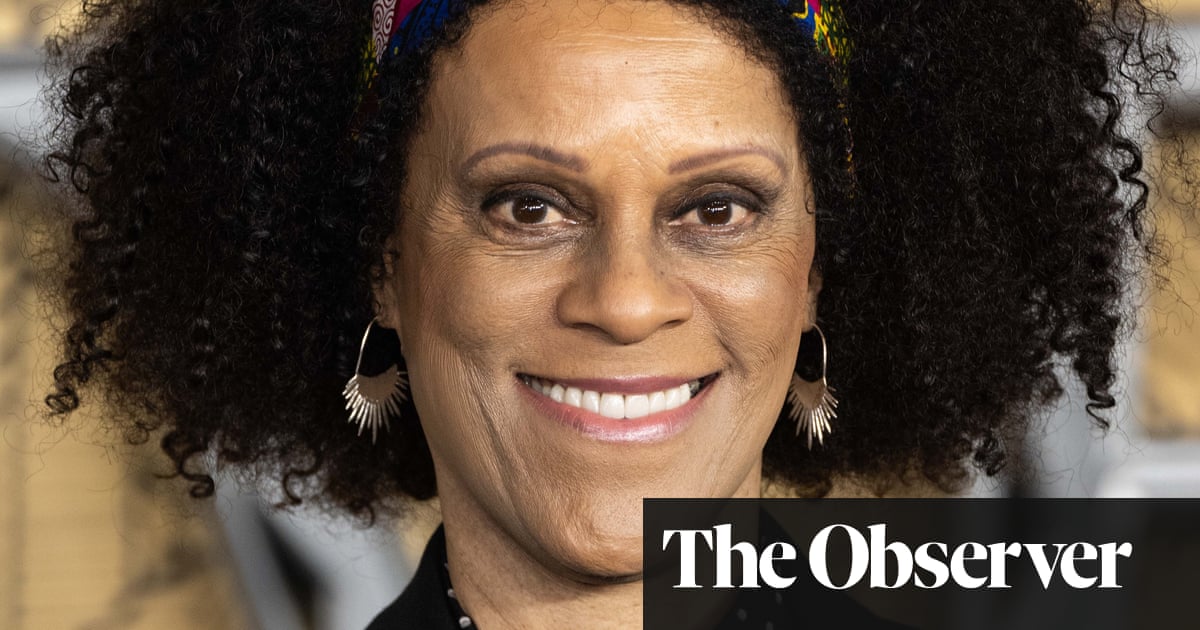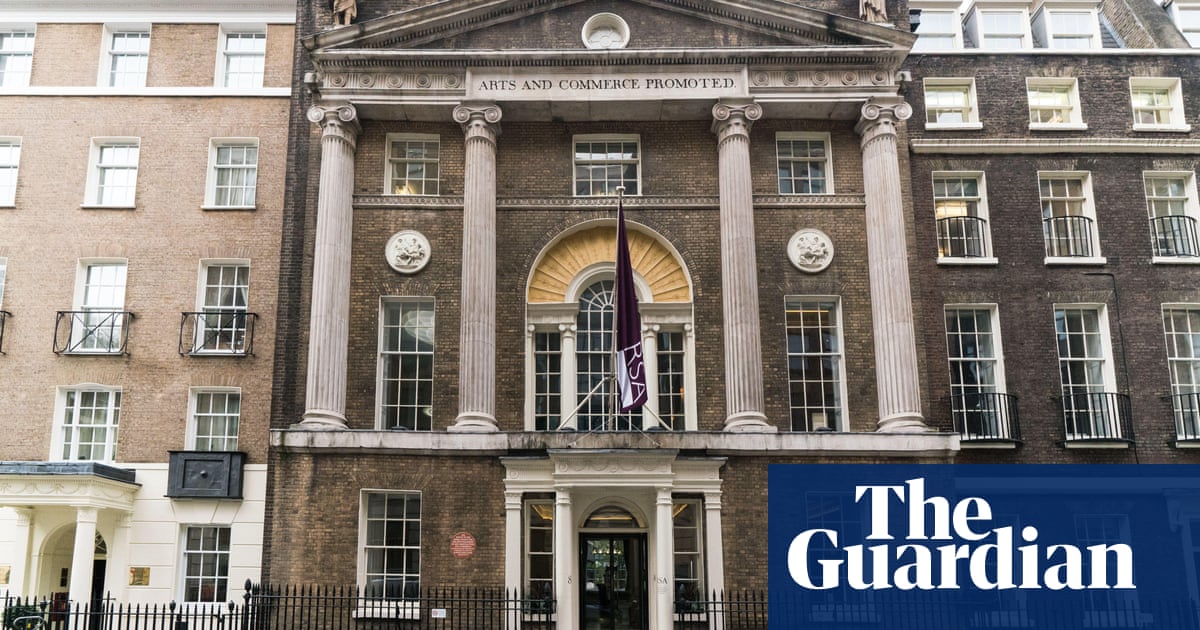
The late Andrea Levy, author of the award-winning Windrush novel Small Island, is to become the first writer of colour to have her pen join the Royal Society of Literature’s historic collection, which includes pens belonging to George Eliot and Lord Byron.
The eminent society, which was founded in 1820, periodically appoints new fellows deemed to have published works of “outstanding literary merit”. Fellows are then invited to sign their names in the society’s roll book, using the pen of a “historically influential” UK writer – either Charles Dickens (although his pen was retired in 2013), TS Eliot, Byron or George Eliot. Now, as the RSL sets out to champion the writers of colour with a series of new appointments and initiatives, it has added Levy to this list, alongside Wide Sargasso Sea author Jean Rhys.
“It’s a statement of intent from the RSL to commit to diversity, and there’s no way greater than to feel the very ink, the blood of your ancestors, of your legacy coming through as you write, if you’re a writer of colour – but hopefully for anybody,” said poet Daljit Nagra, who was also announced as the new chair of the RSL.
Levy’s widower, Bill Mayblin, said the author, who died in 2019 at the age of 62, would have been thrilled at the news.
“Andrea always wrote her first drafts by hand and it would be nice to be able to say that she used this pen from that time onwards,” he said. “But the truth is that to her mind it was too posh and valuable to be used for scribbling in her notebooks.
“She kept it neatly in its box on her work desk and took it out for certain tasks like signing books or writing special letters. As a gift from the world of literature, it had a symbolic importance for her. She always used it with pride and treasured it as a possession.”
On Monday, the RSL also announced that its highest honour, the title of “companion of literature”, is to be awarded to six authors: Anita Desai, Kazuo Ishiguro, Hilary Mantel, Edna O’Brien, Philip Pullman and Colin Thubron. The six authors are the first companions to be announced since 2012. Only 12 writers can hold the title at a time, with the new influx adding to a roll of honour which has been predominantly white and male. The six join Michael Holroyd, Tom Stoppard, Michael Frayn, Brian Friel, Margaret Atwood and Alice Munro.
The RSL is also launching two new initiatives to improve diversity among its ranks. The organisation has about 600 fellows, and is planning to elect an unprecedented 60 new fellows over the next two years, through a panel chaired by Booker winner Bernardine Evaristo.
The writers will come from “communities, backgrounds and experiences currently under-represented in UK literary culture,” said the RSL, in order to better reflect UK diversity. This will include writers of colour, LGBTQ+ writers, writers from poorer socioeconomic backgrounds, writers who live with disabilities and writers outside of London. The UK public can nominate authors to be made RSL fellows, with the panel chaired by Evaristo then making their selections.
“It’s so important to create new initiatives designed to help make our culture more inclusive for writers from under-represented communities,” said Evaristo, who has been named as a new vice-president of the RSL. “There are so many stories waiting to be told and I’m looking forward to discovering and nurturing the next generation of talented writers through this mentoring award.”
Nagra – who used Byron’s pen to sign the roll book as a new fellow in 2017: “It’s just like a wooden stick, it’s really hard to use” – said it would be life-changing for some writers. “It took me years to consider sending poems out for publication. I wasn’t even being rejected – I rejected myself first, I thought you had to be from a certain background or ethnicity. I know there’ll be loads of other authors out there who think exactly the way I did.”
The 60 new fellows will join the 29 new fellows announced today, who include Raymond Antrobus, Susan Cooper, Diana Evans, Damian Barr, Michael Palin and Kerry Hudson.
The new RSL International Writers programme, meanwhile, will invite nominations for writers from outside the UK in order to “the power of literature to transcend borders and cultures to bring people together”. A five-year festival called RSL 200 will set out to explore the UK’s literary landscape, looking at “voices lost to history, left unrecognised and uncelebrated in their own time or subsequently”.
“Excellence is a constant project which needs updating. We can’t just judge everything by the criteria of George Eliot and TS Eliot,” said Nagra. “We want to extend the concept of excellence. I think the RSL itself and every event it does, it’s going to feel like a microcosm of Britain and hopefully the world, rather than just a symbol of a certain tribe.”












